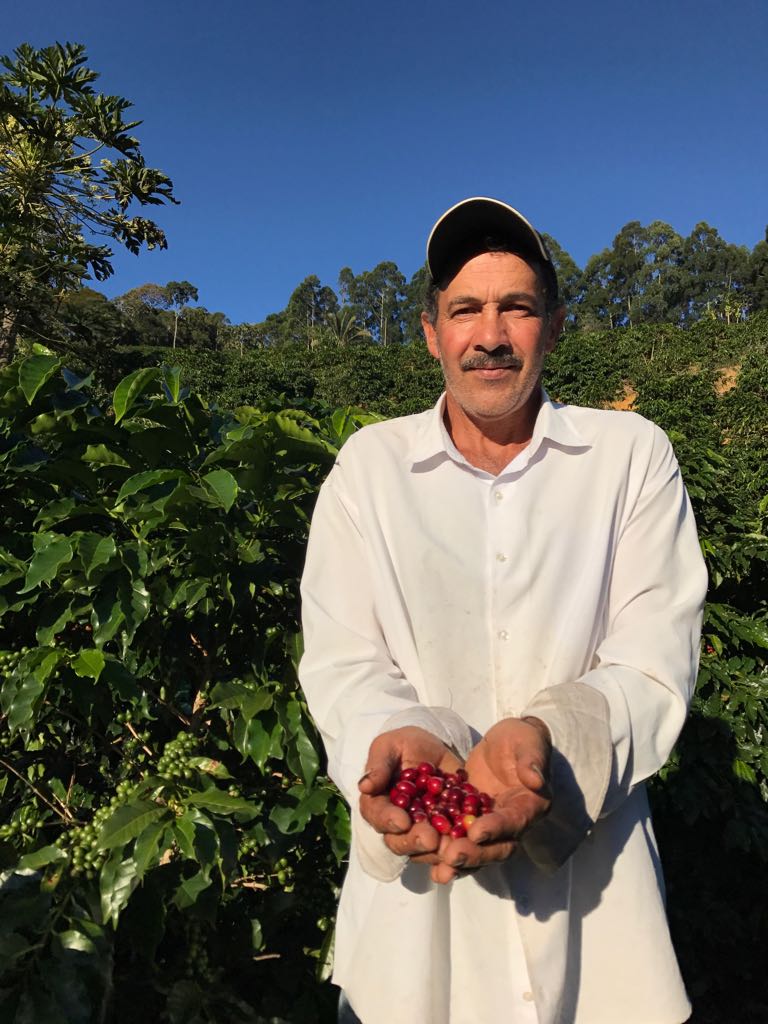Putting pulped coffee in boxes for biological fermentation was called “madness” or “a waste of time” by Noeli’s neighbors. Two 60-kg bags were enough to perform some tests and prove that this was the solution for sensorial improvements in his coffee. The method was learned on one trip to Guatemala and after its success, the specialty coffee market is the main goal for his family businesses.
In 2016, 60 bags were prepared with this method and achieved great prices. “I am working with quality because I want my product to have its value recognized,” says Noeli Edir de Paula. Nowadays, he is working with natural and washed beans. Some of his production remains in boxes (or small tanks) for 1 to 24 hours with no water for natural fermentation purposes. It is working so well that other producers in the region have dedicated part of their production to this technique too.
With 50% of its property covered by native forests, it is the perfect scenario for great coffee development. Balanced climate, abundant water sources and vibrant nature encompass a plantation of Red Catuaí and Catucaí 785 at an altitude from 800 to 1100 meters. This entire area is closely monitored by local authorities as the farm is part of some public-sector conservation projects. “Our plan is to plant more native trees in the short term,” Noeli explains.
“All of this work is important to preserve the local fauna that coexists on the small farm. Toucans, Jacu birds and several species of monkeys, for example,” states Noeli’s wife, Lucimar Zavariz. With exuberant nature and innumerous water sources, the couple are affectionately called “water producers” in their municipality. On part of the guarded landscape, there is a huge cedar tree. It is the family’s symbol and it was planted when Mr. Sebastião Pereira de Paula was only seven years old.
Partners in business and life for 20 years, Noeli and Lucimar inherited Rancho Dantas from Mr. Sebastião Pereira de Paula – the patriarch of De Paula’s family. Their property neighbors that of his uncle, Valdeir de Paula, and both are working with specialty coffee now. Both took special care of their beans, and in 2015 that they decided to change the drying process and start organizing the harvest by lots. Biological fermentation was the next step toward better quality coffee. “Finishing in the highest positions in quality contests is now our goal,” says Lucimar.
“I am working with quality because I want my product to have its value recognized” – Noeli Edir de Paula

